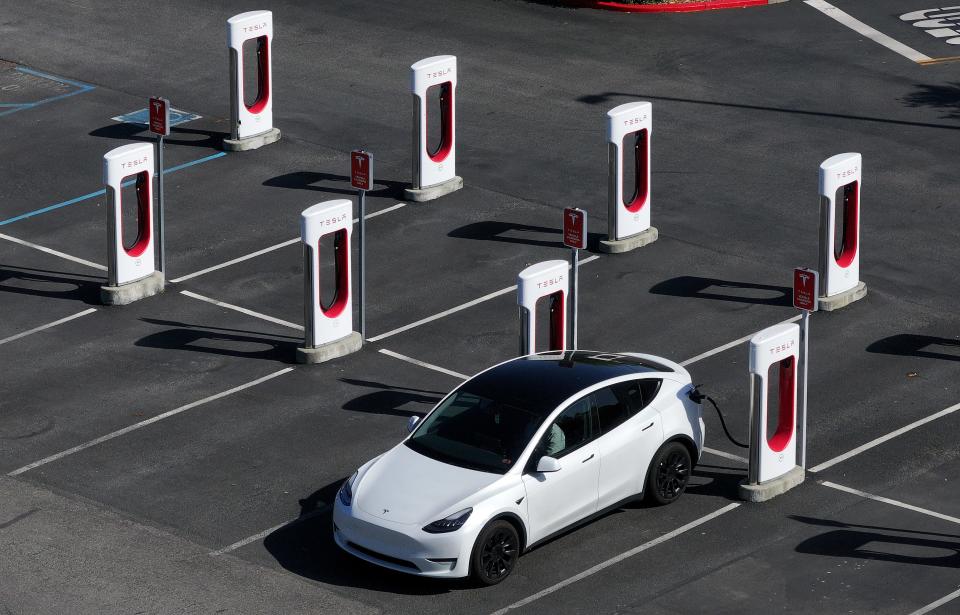Tesla is having trouble wooing new EV shoppers

A JD Power study indicates Tesla is struggling to impress new owners.
Traditional automakers are providing EVs for a new contingent of EV shoppers.
Tesla's chokehold on the US electric-vehicle market is starting to wane.
A new study from JD Power suggests Tesla is having difficulty impressing new electric-vehicle buyers.
In the firm's annual owner-satisfaction study, owners of electric vehicles built by traditional automakers said they felt more connected with their cars than Tesla owners did. JD Power found that while Elon Musk's car company remained popular among its most loyal customers, its performance among newer buyers was lackluster.
That's bad news for Tesla, especially as a yearlong slowdown in EV demand is beginning to affect the EV leader's sales. Tesla has reported two straight quarters of falling sales, reversing years of growth for the company.
On top of that, Tesla's strategy to undercut competitors on price is no longer enough to keep growing. As a result, the car company's financial performance has taken a hit in the first half of 2024, with non-autos-related revenue driving the most growth.
As the profile of the average EV shopper skews away from Tesla's bread and butter, traditional automakers are doing a better job of meeting that average shopper's needs, said Frank Hanley, a senior director of auto benchmarking at JD Power.
"They're launching enhanced vehicles that are more in line with what customers want, including improved interior storage and higher-quality materials, as well as ensuring features have ease of use," he said in a press release.
Tesla's easy ride is over
Tesla made a name for itself among a specific group of tech-savvy, wealthy early adopters.
The typical Tesla driver is so stereotypical that they have a nickname: Tesla bro. These drivers are enticed by Tesla's user experience and high-tech accessories — and have more patience for features that are hard to use or have initial bugs.
But the non-Tesla-bro contingent is looking for something more practical that mimics the experience of their gas-powered car.
The results of the JD Power study reflect what has been apparent to industry experts for some time now: Tesla's chokehold on the US electric-vehicle market is waning as more options enter the market.
JD Power surveyed 99,144 owners of new 2024 model-year vehicles after 90 days of ownership. Responses were collected from July 2023 through May.
Tesla's share of US electric-vehicle sales in the second quarter fell to 49.7%, marking the first time its share dropped below 50% in a quarter, according to Cox Automotive. That's off from a year ago, when it had 55% share. In 2020, according to Experian, it had nearly 80%.
That leaves an opening for traditional automakers at a time when the EV market is getting tougher.
Chevrolet, for example, is leaning in and flooding the market with new electrified versions of the Blazer, Equinox, and Silverado — stalwart nameplates that customers already trust. That's already helped the brand chip away at Tesla's market share. And at Ford, EV sales were up 61% in the second quarter, trailing only Tesla in sales so far in the year.
For battery electric vehicles, Hanley said, "recent launches from traditional manufacturers have surpassed perennial leader Tesla when it comes to owners' level of emotional attachment and excitement with their new vehicle."
Read the original article on Business Insider

 Yahoo Autos
Yahoo Autos 